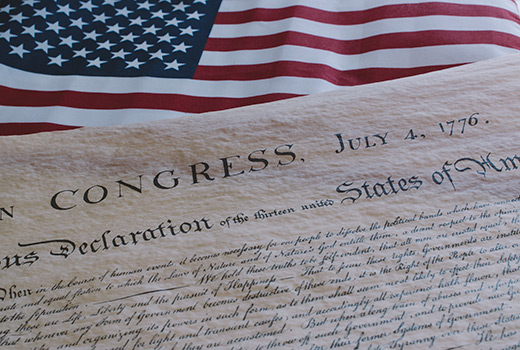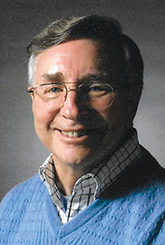The American Declaration of Independence was signed by 56 brave American colonists on July 4, 1776. Now, 240 years later, Americans still celebrate that date annually as Independence Day. The Declaration of Independence has been referred to as the fountainhead of American democracy.
This amazing document boldly declares “that these United Colonies are, and of Right ought to be Free and Independent States; that they are absolved from all allegiance to the British crown, and that all political connection between them and the state of Great Britain, is and ought to be totally dissolved; and that as free and independent states, they have full power to levy war, conclude peace, contract alliances, establish commerce, and to do all other acts and things which independent states may of right do.”
While this great document is a declaration of independence from Great Britain, it is also a declaration of independence, generally speaking, from corrupt government. The declaration cites more than two dozen “facts” that comprised “a history of repeated injuries and usurpations” by the King of England and “an absolute tyranny over these States.”
The Declaration of Independence is also a declaration of interdependence. It indicates that the colonies (today, states) are mutually dependent upon each other. There are 12 direct references to the colonies, implying that the success of the new nation would depend on their unified efforts. And the document contains many references to “the people,” indicating a mutual dependence on each other, regardless of racial, cultural or religious differences. The states and the people could achieve the most by working together.
This document is also a declaration of dependence. Our founding fathers did not state that they would depend upon the rich and vast natural resources of this new land — including coal, gold, silver, fertile farm lands and rivers — nor would they depend upon organized government.
James Madison said: “We have staked the whole future of American civilization not on the power of government, far from it. We have staked the future of all of our political institutions upon the capacity of each and all of us to govern ourselves according to the Ten Commandments of God.”
John Quincy Adams said: “The highest glory of the American Revolution was this: that it connected, in one indissoluble bond, the principles of civil government with the principles of Christianity.”
Our Founding Fathers depended upon divine providence. The Declaration contains four proper names: God, Creator, Supreme Judge and Divine Providence.
They believed in God — one God, the Supreme Being.
They believed that one God to be the Creator and Judge.
They acknowledged their dependence upon the Divine Providence of that one God. They wrote: “And for the support of this declaration, with a firm reliance on the protection of Divine Providence, we mutually pledge to each other our lives, our fortunes and our sacred honor.”
Our first president, George Washington, said: “It is the duty of all nations to acknowledge the providence of Almighty God, to obey His will, to be grateful for His benefits, and humbly to implore His protection and favor.”
John Jay, the first chief justice of the United States Supreme Court, said: “Providence has given to our people the choice of their rulers, and it is the duty, as well as the privilege and interest of our Christian nation, to select and prefer Christians for their rulers.”
The House Judiciary Committee Report of March 27, 1854, includes these statements: “At the time of the adoption of the Constitution and the amendments, the universal sentiment was that Christianity should be encouraged … . In this age there can be no substitute for Christianity … . That was the religion of the founders of the republic, and they expected it to remain the religion of their descendants.”
Our Declaration of Independence reflects the truth of Psalm 33:12: “Blessed is the nation whose God is the Lord.”
— Glenn Rusher is a retired pastor, currently serving as interim at Southside Baptist Church, Chesnee.

